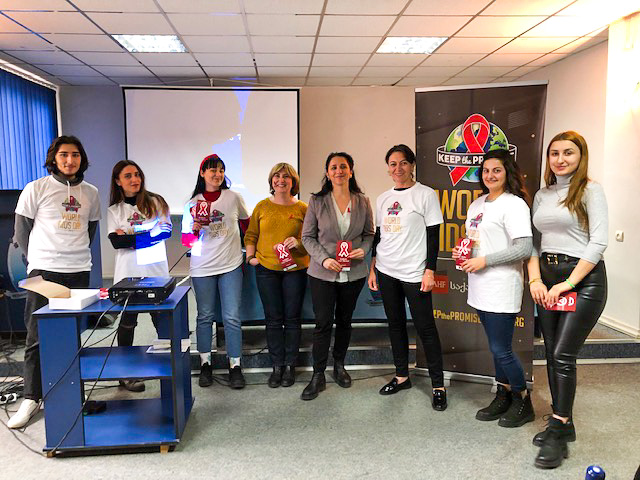HIV BASICS
Learn the basic facts of HIV and AIDS

Concerned about HIV symptoms or how it can be transmitted? The fear of having a medical consultation is not unique. Prepare yourself by reading about the free rapid HIV test by pressing the buttons on the various topics below and learning about HIV.
HIV is transmitted through the following bodily fluids:
- Blood
- Pre-seminal fluid (pre-cum)
- Semen
- Breast Milk
- Vaginal fluids
- Anal mucous
When you have sex with someone who is HIV-positive (infected with HIV) the virus can enter your system through small tears in your vagina, anus, penis or – rarely – your mouth. Open sores caused by sexually-transmitted diseases (STDs) such as herpes and syphilis can make it easier for HIV to enter your system.
If you are an injection drug-user, HIV can be transmitted when your blood comes into contact with another person’s blood through sharing needles. HIV can pass from mother to child while a woman is pregnant or through breast milk. In rare cases, healthcare workers have come into contact with body fluids and become infected. Effective screening has made HIV infection via blood transfusion or organ donation extremely rare
HIV is NOT transmitted through the following bodily:
- Saliva
- Vomit
- Feces
- Nasal fluid
- Tears
- Sweat
- Urine
There is no cure or vaccine for HIV. However, HIV is treatable and preventable.
Here’s how you can minimize your risk for infection:
Use condoms: If you are sexually active, always use a condom during vaginal and anal intercourse. Condoms are highly effective in preventing HIV transmission.
Use clean needles: If you inject drugs, use new, sterile needles.
Discuss sexual histories: Knowing the HIV status of your partner or partners will enable you to take steps to prevent transmission, like using condoms. About 25% of people in the U.S. who are infected don’t know it. Get tested together
Have sober sex: If you are drinking or taking drugs, you are less likely to practice safer sex and use condoms. If you feel like you may have a drug or alcohol, seek help.
Get tested for other STDs: Having a sexually-transmitted disease (STD)—such as Chlamydia, gonorrhea or syphilis—can increase your risk of getting infected with HIV. Many STDs do not have obvious symptoms.
Abstain or have fewer partners: Having fewer sexual partners will decrease your risk for contracting HIV or other STDs.
The symptoms may vary depending on the stage of HIV infection. Many don’t report feeling ill.
Many people with HIV do not experience any systems until the late stages of the disease. In fact, the virus can live in your body for as many as 10 years – or more – without causing any obvious symptoms. Extreme fatigue, diarrhea, nausea, vomiting, fever and wasting syndrome can be some of the symptoms experienced at the late stages –when the disease has progressed to AIDS. These symptoms are most often caused by the opportunistic infections that a weakened immune system has been unable to fight off.
In the first 2 weeks to 30 days after infection—when higher levels of the HIV virus are in a person’s system and he or she is most infectious (or, able to pass the virus on to others)—some may experience severe flu-like symptoms. It’s important to remember that not everyone who gets infected experiences these symptoms.
If you are concerned, you can get tested for free in Tbilisi with us. All results are confidential.
While HIV infection is a serious disease, it is important to remember that it is very treatable. Many people with HIV and AIDS live long, healthy, productive lives. HIV is no longer a “death sentence.” Since 1995, there have been medications known as anti-retroviral treatment that effectively combat the disease. In fact, the treatment is so effective that some who regularly and consistently take their medications do not even have a detectable level of virus in their system. If you are HIV-positive, there is hope and there is help. In the first 2 weeks to 30 days after infection—when higher levels of the virus are in a person’s system and he or she is most infectious (or, able to pass the virus on to others)—some may experience severe flu-like symptoms. It’s important to remember that not everyone who gets infected experiences these symptoms.
If you have HIV, you can get the necessary medical and psychological help. Treatment of HIV infection in Georgia is free and is provided in specialized healthcare institutions in each of the regions of Georgia.
When you are living with HIV, you can give birth to a healthy baby. When you are diagnosed while pregnant, you should start treatment as soon as possible. When you are already on treatment, you should continue your treatment regularly. Placenta protects your unborn child from getting HIV. Giving birth and breastfeeding potentially pose a risk for vertical transmission (from mother to child). However, if the virus is suppressed and undetectable, the chances are reduced greatly.
If your viral load is undetectable, you can give birth vaginally or naturally. When, at the time of conceiving, your viral load is not undetectable (yet), you will probably be advised a caesarian cut. After delivery, your infant will receive PEP (post exposure prophylaxis) for 4 weeks to ensure that HIV will not be transmitted, and will be tested for HIV. It is important that each step in the process is thoroughly discussed with your doctor.


